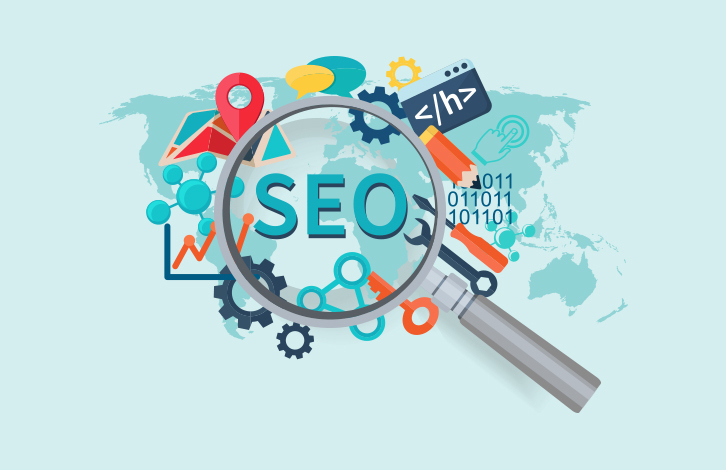By [Jayant Rajput] | August 2025
If you’ve ever dived into the world of digital marketing or tried to get your website ranked on Google, you’ve likely come across the terms “On-Page SEO” and “Off-Page SEO.” These two components are the foundation of any successful SEO strategy, and while they both aim to improve your visibility in search engine results, they work in very different ways.
Think of your website as a shop. On-Page SEO is everything you do inside your shop—clean displays, clear signs, great product descriptions, and fast service. Off-Page SEO, on the other hand, is all the buzz and reputation your shop has outside—the reviews, recommendations, social media mentions, and external links pointing people toward your business.
What is On-Page SEO?
On-Page SEO (also known as On-Site SEO) refers to all the optimization strategies you apply directly to your website to help search engines better understand your content. It’s about making your pages readable, relevant, and useful—both to your users and to Google’s algorithms.
Key Elements of On-Page SEO
Keyword Optimization: This is the process of researching and using the right keywords in the right places—like the title tag, headers, URL, and throughout the body content. For example, if you’re targeting the keyword best vegan shoes, you’d naturally weave that into your content without overstuffing.
Meta Tags: Title tags and meta descriptions are crucial. They’re what users see in search engine listings and can make or break your click-through rate. A well-optimized meta tag includes the focus keyword and compels users to click.
Header Tags (H1, H2, H3): These create structure and hierarchy in your content, making it easy for both users and search engines to navigate and understand.
Image Optimization: Properly labeled image file names, ALT text, and compressed file sizes not only boost SEO but improve page load time and accessibility.
Internal Linking: Linking to other relevant pages on your site helps search engines crawl your site more efficiently and keeps users engaged longer.
Page Speed & Mobile-Friendliness: Fast, responsive websites are now a major ranking factor. If your site loads slowly or doesn’t work well on mobile, your rankings will suffer.
Why On-Page SEO Matters
Search engines are constantly trying to understand the content of your pages. On-Page SEO is how you help them do that. When done well, it ensures your content is:
- Easy to read
- Easy to navigate
- Relevant to what users are searching for
It’s the foundation of your SEO efforts. Without a strong on-site structure, even the best Off-Page strategies won’t be enough to drive sustainable rankings.

What is Off-Page SEO?
Off-Page SEO (or Off-Site SEO) includes all the activities you do outside of your website to improve its reputation and authority. Think of it as building trust in your brand from outside sources.
Key Elements of Off-Page SEO
Backlinks (Inbound Links): These are links from other websites pointing to your pages. The more high-quality and relevant backlinks you have, the more trustworthy your site appears to search engines.
Social Signals: Engagement on platforms like Facebook, LinkedIn, Instagram, and Twitter—likes, shares, and mentions—helps amplify your content and drive indirect SEO benefits.
Brand Mentions: Even if someone doesn’t link to your site, just mentioning your brand in blogs, forums, or other platforms can boost visibility and authority.
Guest Posting: Writing content for other reputable websites in your niche not only helps build backlinks but also positions you as a thought leader.
Influencer Outreach and PR: Collaborations with influencers or publications in your niche can lead to more shares, backlinks, and exposure.
Google Business Profile and Local Citations: Especially important for local SEO, listings on directories (like Yelp, Yellow Pages, JustDial) signal to Google that your business is legitimate and well-established.
Why Off-Page SEO Matters
While On-Page SEO tells Google what your page is about, Off-Page SEO tells Google whether your site is trustworthy and popular. When lots of authoritative sources link back to you, it’s like the internet vouching for your content.
Google uses E-E-A-T (Experience, Expertise, Authoritativeness, and Trustworthiness) as a core part of how it evaluates content. Strong Off-Page SEO boosts your “A” and “T”—authority and trust.

Which is More Important?
There’s no definitive winner here. You need both. Think of On-Page SEO as getting your house in order—clean, structured, and welcoming. Off-Page SEO is like throwing a housewarming party and getting others to talk about how great your place is.
Without good On-Page SEO, Off-Page efforts can fall flat because your content won’t perform well even if people link to it. And without Off-Page SEO, you’ll struggle to gain authority and rise above the competition, even with the best content.
How to Build a Balanced SEO Strategy Using Both
A successful SEO strategy doesn’t rely only on what’s inside or outside your website—it blends both harmoniously. Here’s how you can strike the right balance:
Start with a Strong On-Page Foundation
Conduct Keyword Research: Use tools like Google Keyword Planner, Ahrefs, or Ubersuggest to find what your audience is searching for.
Create High-Quality, Intent-Focused Content: Your content should solve a problem, answer a question, or deliver real value. Google rewards content that satisfies search intent.
Optimize Your Technical SEO: Ensure clean site architecture, use SSL (HTTPS), optimize URL structure, and improve mobile usability.
Use Internal Links Strategically: Link related pages together to guide users and spread link equity throughout your site.
Ensure Fast Loading Speed: Compress images, reduce redirects, and use reliable hosting.
Then Amplify with Off-Page Tactics
Earn Backlinks Naturally: Create link-worthy content like infographics, original research, or comprehensive guides that others will want to reference.
Reach Out to Niche Influencers: Build relationships with bloggers, content creators, and editors in your industry. Personal outreach and networking can lead to valuable links.
Be Active on Social Media: Share your content, engage with followers, and participate in relevant conversations.
List on Reputable Directories: Especially for local businesses, this is crucial. Keep your name, address, and phone number (NAP) consistent across all listings.
Encourage Reviews and Testimonials: Google pays attention to customer sentiment across third-party review platforms.
Track and Analyze Results
Use tools like:
- Google Analytics (to measure traffic, behavior, and conversions)
- Google Search Console (to monitor indexing, keyword rankings, and technical issues)
- Ahrefs/Moz/Semrush (to track backlinks, keyword positions, and competitor performance)
Regularly audit your website and backlinks to ensure your strategy remains aligned with the latest SEO trends and Google updates.
Final Thoughts
Understanding the difference between On-Page and Off-Page SEO is crucial—but what’s even more important is knowing how to use both in harmony.
- On-Page SEO is your content’s DNA—what makes it understandable and relevant.
- Off-Page SEO is your content’s social proof—what makes it trustworthy and authoritative.
SEO isn’t a one-time task. It’s an ongoing process that requires consistent effort, updates, and creativity. Whether you’re optimizing blog posts or building backlinks through thought leadership, always focus on creating value for your audience.
By blending both On-Page and Off-Page SEO strategies, you can climb search rankings, attract more visitors, and ultimately, drive more conversions.
This blog is a contribution to Digital Jayant’s Knowledge Hub on Digital Marketing.

